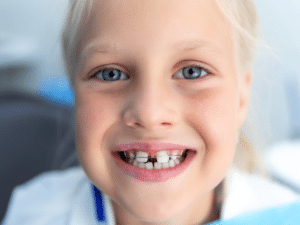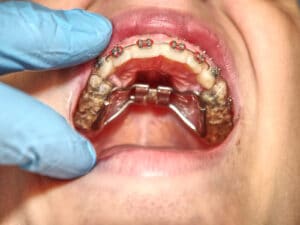Mouthguards are often overlooked, but they play a crucial role in maintaining oral health. The truth about mouthguards is that they offer more than just protection for athletes. Dentists recommend mouthguards for a variety of reasons, from safeguarding against injuries during sports to preventing damage from teeth grinding. Many people don’t realize just how important these simple devices can be. Whether you’re an athlete or someone who suffers from nighttime teeth grinding, wearing a mouthguard can save you from significant dental problems in the long run.
What Are Mouthguards and How Do They Work?
Mouthguards are protective devices that cover your teeth and gums to prevent damage. They work by absorbing and distributing the force of impact, whether from a collision, a fall, or teeth grinding. While they might seem like a small item, mouthguards can be a game-changer when it comes to protecting your dental health.
Types of Mouthguards
There are several types of mouthguards, each designed for different needs. Understanding these options can help you choose the right one for your situation.
- Custom-made mouthguards: These are made specifically for your mouth by a dentist. Custom mouthguards offer the best fit, comfort, and protection. They are created using impressions of your teeth and can provide the most reliable protection, especially for athletes.
- Boil-and-bite mouthguards: These are available over-the-counter and are a more affordable option. You place the mouthguard in hot water to soften it, then bite down to create a mold of your teeth. While they offer better fit than stock mouthguards, they are not as precise as custom-made ones.
- Stock mouthguards: These are pre-formed and ready to wear. While they are the least expensive option, they don’t fit well and can be bulky. They also tend to shift around, which may make them uncomfortable and less effective.
The Truth About Mouthguards: Why Dentists Recommend Them
Many people assume that mouthguards are only for athletes, but the truth about mouthguards is that dentists recommend them for a much wider range of situations. Here’s why they’re essential for your dental health.
Protecting Against Injuries in Sports
Athletes, especially those in contact sports like football, basketball, and hockey, face a high risk of dental injuries. A sudden impact to the face can easily cause broken or knocked-out teeth. A mouthguard helps reduce this risk by cushioning the blow and protecting your teeth, lips, and gums. Dentists agree that a well-fitted mouthguard can prevent costly and painful dental injuries during both recreational and competitive sports.
Preventing Teeth Grinding (Bruxism)
Teeth grinding, or bruxism, is another situation where mouthguards play a key role. Many people grind their teeth at night, often without realizing it. This constant grinding can lead to worn-down enamel, cracked teeth, and even jaw pain. Dentists commonly recommend night guards (a type of mouthguard) for people who grind their teeth while sleeping. These guards help prevent tooth damage and can ease symptoms of jaw discomfort or headaches caused by bruxism.
Long-term Dental Health
Beyond sports and grinding, mouthguards can help protect your dental work, such as braces or fillings, from damage. They create a barrier that can prevent wear from biting and clenching, which can be especially useful for people who tend to clench their jaws during stressful situations. Dentists emphasize that wearing a mouthguard is a simple and effective way to protect your smile from a wide variety of dental problems that can develop over time.
Who Should Wear a Mouthguard?
Mouthguards are beneficial for a wide range of people, not just athletes. Here’s who should consider wearing one.
Athletes and Active Individuals
Anyone who participates in contact sports or activities with a risk of facial injury should wear a mouthguard. This includes not just professional athletes, but also weekend warriors, kids, and adults involved in recreational sports. Protecting your teeth during these activities is crucial, as injuries can lead to long-term dental problems.
People Who Grind Their Teeth
Teeth grinding is common among people of all ages, and it can cause significant damage over time. Whether you grind your teeth due to stress, anxiety, or as a subconscious habit during sleep, a mouthguard can help protect your teeth and relieve pressure on your jaw.
Children and Teens
Parents should consider mouthguards for their children, especially if they play sports. Children’s teeth and gums are still developing, which makes them more vulnerable to damage from impact. A mouthguard can reduce the risk of dental injuries and ensure that their smiles stay healthy as they grow.
People with Braces
If you wear braces, a mouthguard can protect both your braces and your teeth from injury. Wearing a mouthguard during sports is particularly important for children and teenagers with braces, as the wires and brackets can cause cuts and bruising inside the mouth if they come into contact with the teeth or other hard surfaces. A mouthguard provides an extra layer of protection, keeping both your dental appliances and your teeth safe.
The Truth About Mouthguards: Do They Really Work?
When it comes to mouthguards, some people may question their effectiveness. The truth about mouthguards, however, is that they are proven to provide significant benefits in preventing dental injuries and other oral health issues.
Reducing the Risk of Injury
Studies and expert recommendations consistently show that mouthguards significantly reduce the risk of oral injuries. In contact sports, they act as a cushion, absorbing the impact of blows to the face, which helps prevent broken teeth, cuts, and other injuries to the soft tissues inside the mouth. Dentists recommend mouthguards for anyone participating in sports that involve physical contact or the possibility of falling.
Preventing Tooth Damage from Bruxism
Mouthguards are highly effective for people who suffer from bruxism (teeth grinding), particularly at night. Without protection, grinding can lead to worn-down enamel, tooth fractures, and severe jaw pain. Night guards, a specific type of mouthguard, can prevent these issues by absorbing the pressure from grinding and providing a barrier between your upper and lower teeth. Many people who use night guards report a noticeable reduction in jaw pain and tooth sensitivity.
Evidence from Studies
Research backs the claim that mouthguards are effective. Studies have shown that athletes who wear mouthguards experience fewer dental injuries than those who don’t. Furthermore, dentists have found that people who use mouthguards for bruxism often report less damage to their teeth, helping them avoid expensive and time-consuming dental repairs.
How to Choose the Right Mouthguard for You
With several options available, it’s important to choose a mouthguard that suits your needs. Here’s what to keep in mind when selecting the right one.
Factors to Consider
When choosing a mouthguard, consider the following factors to ensure it fits well and provides the protection you need:
- Comfort: A mouthguard should fit comfortably in your mouth without causing irritation. Custom-made mouthguards are usually the most comfortable, as they’re designed specifically for your mouth.
- Material: Mouthguards are made from different materials such as silicone, latex, and acrylic. Silicone is often chosen for comfort, while harder materials like acrylic offer more durability. Choose the material that best fits your needs.
- Durability: If you plan on using your mouthguard frequently, you’ll want one that lasts. Custom mouthguards tend to be more durable, while boil-and-bite options may wear down quicker with regular use.
Custom vs. Over-the-Counter Mouthguards
Custom mouthguards are designed by a dentist based on impressions of your teeth. They offer the most precise fit and provide the highest level of protection and comfort. Although they can be more expensive, they are often worth the investment, especially for athletes or individuals with specific dental needs.
Boil-and-bite mouthguards, while more affordable, are a step up from stock mouthguards in terms of fit. These mouthguards are softened in hot water and then molded to your teeth. While they don’t offer the same level of precision as a custom one, they provide a better fit than the generic, one-size-fits-all options available over the counter.
Consult a Dentist
If you’re unsure about which type of mouthguard is right for you, consult your dentist. They can help you choose a high-quality mouthguard and ensure that it fits properly. A dentist’s expertise is especially useful when selecting a mouthguard for children, those with braces, or people with specific dental concerns.
Caring for Your Mouthguard: Maintenance Tips
To keep your mouthguard effective and long-lasting, proper care is essential. Here are some key tips to maintain your mouthguard:
Cleaning and Storing Your Mouthguard
- Clean it after every use: Rinse your mouthguard with cold water after each use to remove saliva and debris. For a deeper clean, use a toothbrush and mild soap or a specialized mouthguard cleaner.
- Dry it completely: After cleaning, dry your mouthguard completely before storing it to prevent bacteria growth.
- Store it in a case: Always store your mouthguard in a ventilated case when not in use. This helps prevent dirt, bacteria, and damage.
Avoid Damage
- Keep it away from heat: Mouthguards, especially boil-and-bite versions, can warp if exposed to high temperatures. Never leave it in a hot car or near direct heat.
- Check for wear and tear: Inspect your mouthguard regularly for signs of damage or wear. If it’s showing signs of cracking or losing its shape, it’s time to replace it.
Common Mistakes to Avoid
- Not cleaning your mouthguard: Failing to clean your mouthguard can lead to unpleasant odors and bacterial buildup, which can contribute to oral health problems.
- Using someone else’s mouthguard: Mouthguards are designed for individual use. Sharing mouthguards can cause discomfort and transfer germs.
Protect Your Smile Today with Dr. Bob Bryan Orthodontics
At Dr. Bob Bryan Orthodontics, we understand the importance of protecting your smile with the right dental care, including custom mouthguards. With over 50 years of experience in Allentown and Hamburg, PA, we’re committed to providing the highest quality orthodontic care in a comfortable, friendly environment.
If you’re an athlete or someone looking to safeguard your teeth from grinding, we offer tailored solutions such as Invisalign, early treatment, and more to keep your smile healthy. Contact us today to learn how we can help protect your teeth and ensure a confident, beautiful smile for years to come.







